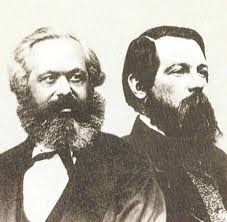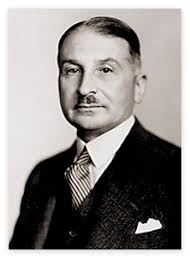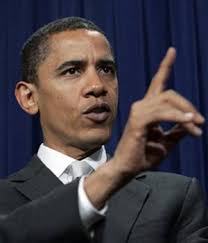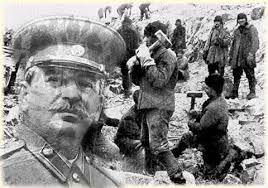People
have an inherent ambition to climb to the top. Some choose to achieve this end
by outdoing their peers in achieving what had been viewed as unachievable.
Others choose to take shortcuts. Just as some athletes choose to take synthetic
steroids in order to beat the competition, so have people in academia,
publishing and politics often chosen to cheat themselves and their audiences.
Obviously, some of these infractions have a greater impact on society than
others. For instance, when an academician plagiarizes someone else’s work, it
usually affects only the two involved. When a sub-par author of science fiction
decides to display a dose of insanity in an effort to prey on the weaknesses of
audiences with a knack for the truly incredible—like talking to the dead, or
experiencing aliens—no one is hurt. In fact, from a capitalist point of view,
both parties walk away happy from the transaction: the author gets recognition
and a small fortune, while the audience gets their desires satisfied. More
dangerous examples of preying on people’s ignorance and desire for the
incredible can be cited with the mention of countless quasi-religious peddlers,
the most dangerous ones of which being those whose tricks affect the greatest
numbers of people. One of these failed authors—a quasi-religious peddler—was a
Nineteenth century lazy German drunk, who went by the name of Karl Marx. After
having his theories, and the theories of fellow socialists, rebuked repeatedly
based on the laws of logic, Marx decided to declare logic irrelevant, as Ludwig
von Mises describes in “Socialism, An Economic and Sociological Analysis”:
More
dangerous examples of preying on people’s ignorance and desire for the
incredible can be cited with the mention of countless quasi-religious peddlers,
the most dangerous ones of which being those whose tricks affect the greatest
numbers of people. One of these failed authors—a quasi-religious peddler—was a
Nineteenth century lazy German drunk, who went by the name of Karl Marx. After
having his theories, and the theories of fellow socialists, rebuked repeatedly
based on the laws of logic, Marx decided to declare logic irrelevant, as Ludwig
von Mises describes in “Socialism, An Economic and Sociological Analysis”:

The staring-point of socialist
doctrine is the criticism of the bourgeois order of society. We are aware that
socialist writers have not been very successful in this respect. We know that
they have misconceived the working of the economic mechanism, and that they have
not understood the function of the various institutions of the social order
which is based on division of labour and the private ownership of the means of
production. It has not been difficult to show the mistakes socialistic
theorists have made in analyzing the economic process: critics have succeeded
in proving their doctrines to be gross errors. … By means of sophistry
[Marxism] has prevented the scientific treatment of sociological problems and
has poisoned the intellectual atmosphere of the time.
According to the Marxist conception, one’s
social condition determines one’s way of thought (Italics added). His
membership of a social class decides what views a writer will express. He is
not able to grow out of his class to free his thoughts from the prescriptions
of his class interest. Thus the
possibility of a general science which is valid for all men, whatever their
class, is contested (Italics added). … Thus Marxism protects itself against
all unwelcome criticism. (p. 27, 28)
Presently
we are experiencing a very similar attempt at cheating by the most powerful man
in the world: the President of the United States of America, as he is trying to
achieve the end of one more term in office. In the fashion of a run of the mill
peddler, the American President is abusing the ignorance of his audience.
In
this day and age in the Western world, ignorance is absolutely a function of
one’s choice; therefore the ignorance of Obama’s audience is completely
voluntary. Generally speaking, people dislike giving their mind a workout.
Therefore, they prefer gossip, trivia and noise pollution over meaningful information
that might require more than a single-step thought. The ignorance which is at
issue here is that of some of the most important pillars of a free society: the
ones upon which the United States of America is founded. With the ready
availability of the Internet, one needs invest no more than 30 minutes per day
to educate oneself.
This
rule of ignorance which has taken over American society comes about at a time
when an unprecedented percentage of the population possesses degrees obtained
by higher education. There is causality in this relationship. In fact, the
overpowering ignorance that is pervasive among the American public has come
about as a direct result of the vastness of the higher education system. One
reason is the fact that, as has been said before, today we tend to learn more
and more about less and less. That is, when people study one thing or another,
they focus too much on studying the details of it, while all too often
disregarding the knowledge that would produce what was once known as the
phenomenon of the “well rounded individual.”
A
more far reaching reason for the present rule of ignorance, however, has to do
with the quality of both the education given, as well as of those who receive
it. Throughout human history, higher education has normally been reserved for
the elite, that is, for a very small and very limited percentage of the
population. Today, higher education has come to be seen as a basic human right
which has resulted in colleges and universities getting reduced to nothing more
than diploma printing presses. Educational institutions, just as any enterprise
ought to be in the market for profit—the present problem being that government
subsidies and student loans have grossly increased demand, thereby watering
down the quality of the supply.
At
the same time, the students who attend these institutions have no intention of
getting educated or, God forbid, enlightened—they are just looking for an
office, rather than an assembly line, job. The vast majority of students who attend
post secondary educational institutions these days simply do it for the piece
of paper they are given at the end of the ride. As long as the customers (the
students) pay the tuition up front, the seller (the educational institution)
has no problem providing them with the desired piece of paper, even though the
students spend most of their class time checking “Facebook” or shopping online.
Misled by their own equation of attending an educational institution with
actually getting educated, very few people seek further enlightenment, that is:
informal, independent education. There is no great mystery as to why this is
the case: very simply put, there is a certain (usually small) percentage of the
population that truly enjoys being educated. Higher education is for them, not
for those who seek a university diploma only as a means to avoid honest
labour.
But
I digress. The issue at hand here is US President Barak Obama’s cheap trickery.
While Mr. Obama may have a flaw in his personality which consists in his
ambitiousness, he is by no means a person who lacks intelligence or
cunning—which he has used like very few in history. The system of elected
delegate representation—commonly known as “democracy”—possesses in itself an
inherent flaw, in that lawmakers are elected by the public for their relative
likeability. Unlike the disciplines of business or sport, for example, where
capability to perform a task at hand determines who advances, in the discipline
of electoral democracy representatives get elected for reasons that are usually
irrelevant to the capabilities necessary of them by the office they seek to
win. In this system of elected rulers a sleek sweet-talker like President Obama
is given more than a “fair” opportunity to fulfill his ambition of grandeur.
All one needs to do is to give the audience what they want, or rather to tell
them what they want to hear. So, Presidential candidate Obama told people what
they had wanted to hear: that hard work, ingenuity, self-sacrifice and personal
responsibility are not necessary in order for “ordinary people” to live like
extraordinary ones. A perpetual campaigner, Obama keeps harping the same tune,
thereby, discouraging “ordinary” Americans from rightfully seeing themselves as
the cause of the current economic crisis they find themselves in.

Even more
deleterious to American society is the fact that the President’s rhetoric also
prevents “ordinary” Americans from realizing that they are the only solution to
that problem.
The
dangers of Obama’s sweet-taking rhetoric have become all too obvious through
the recent Occupy Wall Street protests. One underlying cause which all
“Occupiers” seem to rally around is the notion that “the rich” need to pay
higher taxes. It is not difficult to see where this idea comes from if one
listens to any given speech the President recites these days. One of the most
commonly repeated lines by the President is that “the rich” need to pay their
“fair share” of taxes, thereby suggesting that “the rich” fail to pay what is
their fair share. The President’s line implies that since “the rich” fail to
pay their “fair” share of taxes, they pay a share that is “unfair”. As one who
has lived under a totalitarian regime, I find this rhetoric all too familiar.
“The rich” of our time are quickly becoming the Jews of Hitler’s reign, or “the
capitalist” of the time of my grandfather when the Communists took over the
reins of power of my former Homeland. “The rich” are being demonized and
presented as inhumane—subhuman even—heatless, soulless “rat bastards” who in
some Devilish way are feeding upon the blood, sweat and tears of the common,
working man—the Proletariat, if you will.

First,
I will address the threat posed by the demonizing of a segment of the
population and what it can do to a society. As a child I used to spend a large
portion of my time with my grandfather, who was a teenager when the Communist
Party became the ruling force of Yugoslavia, when Macedonia was part of that
federation. My grandfather and I used spend our time by having him tell me
stories from the past, a common theme amongst which were the years that
immediately followed the Communist takeover. The one story that stuck in my
mind is the one about how priest and “capitalists” were treated at the time: it was common practice to parade them on
Sundays, have them stoned and ridden like donkeys, while they wore signs that
said “criminal”.
Assuming
that the “capitalists” were some Monopoly Man, captains of industry types, I
asked my grandfather who these people were, and what factories had they owned
before the Communist takeover. His answer was shocking. The “capitalists” were
no captains of industry; there was no industry to speak of at the time, since
Macedonian society had not yet gone through the Industrial Revolution by the
end of WWII. There were no large landowners, nor were there factories or
capitalists as one may imagine. The people that were labeled “capitalists” were
shopkeepers, bakers, butchers and artisans—small business people. They were
used by the Communist regime as a scapegoat for the poverty of society at large
and were identified as the “Enemy from within”. Those who have sufficiently
studied Hitler’s pre-war Germany will know that the Nationalist Socialists went
after the Jews, not driven by religious fervor, but rather because the Jews
were seen as “the rich”: as a class that lives parasitically off the backs of
the working people.
I
worry when I hear rhetoric of Mr. Obama’s choice which divides portions of the
population, and labels one as being an abuser of another in what is essentially
a free society. Today the President is labeling the top one percent of the
population as the evildoers. What will happen when the pitchfork armed mob
starts executing the richest one percent and plunders their money? If the
present is to be our guide for what the future will bring, then it is not
unreasonable to expect the mob to feast on its newly obtained booty until there
is no more. At that point there will be a new top one percent upon which the
mobs will point their pitchforks. The vicious cycle will go on perpetuating
itself until the corner store shop owner becomes the newest incarnation of the
Devil—in the eye of the mob, of course—“the rich.” A brilliant poet, Venko
Markovski, one of Macedonia’s earliest communists, after his fatal fallout with
the heads of the Yugoslavian Regime wrote a telling truth: “The Revolution eats
its own children.”
There
is further danger in President Obama’s rhetoric, especially in way he speaks of
opponents to his policies in Congress. He calls upon them to “act like
grownups” and to “get to work”, suggesting that they oppose his policies as a
result of a refusal to do the work that they are paid to do as public servants,
and for being childish, rather than because of the objective fallacies those
polices have. Such personal attacks are another technique that Ludwig von Mises
noticed among opponents of liberty:
The enemy is not refuted: enough to
unmask him as a bourgeois. Marxism criticizes the achievements of all those who
think otherwise by representing them as the venal servants of the bourgeoisie.
Marx and Engels never tried to refute their opponents with argument. They
insulted, ridiculed, derided, slandered, and traduced them, and in the use of
these methods their followers are not less expert. (Ludwig von Mises,
“Socialism, An Economic and Sociological Analysis”, p. 29)
Since I am not
rich, and since the most honest and wise way to view any situation is through
the prism of self-interest, I come to the most far reaching danger of Obama’s
rhetoric against “the rich”: demonizing the rich poses a danger to future
prosperity of society as a whole. When being rich or well off becomes seen as
an act of villainy, then fewer people will want to become rich because they
will be punished for it. As a result, those with an entrepreneurial acumen, the
ones who bring positive changes to society will opt against chasing their
dreams and will drop into the fold of mediocrity. This translates into fewer
jobs and no more new inventions that make life better for the not rich. I,
along with my family, have experienced persecution by the state in the name of
financial equality. The result of that persecution is over one hundred
extremely well paying jobs lost in my former home town of Kumanovo, tax revenue
and all that accompanies such an enterprise as well. My former townsfolk have
grown poorer, while my family has been forced to contribute its efforts to a
different society.


